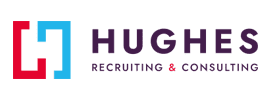How to Seal the Deal After Your Interview: A Comprehensive Guide
The interview is over. You’ve exchanged pleasantries, walked out the door, and finally breathed a sigh of relief. Now what? While the interview itself is a crucial step in the job search process, what you do afterward can be just as important.
This post-interview period is your chance to solidify your interest, showcase your professionalism, and potentially set yourself apart from other candidates. So, how do you leverage this golden opportunity?
10 Important Things to Do After Your Interview
Here’s a breakdown of the essential actions you should take after your interview:
1. Express Gratitude
As basic as this step may seem, it can determine whether you get the job. According to a survey by TopResume, 68 percent of hiring managers say that not receiving a thank-you note after an interview negatively impacts a candidate’s chances, and nearly 1 in 5 have dismissed a candidate for not sending one.¹
Timing is key, so you should aim to send a thank-you note within 24 hours of the interview. This serves two main purposes: showing gratitude for their time and reiterating your interest in the position.
Start the email by thanking the interviewer(s) for their time and consideration. Briefly mention a specific part of the conversation that stood out to you, a detail about the company that excites you, or a point you may have forgotten to elaborate on during the job interview.
Restate your qualifications and enthusiasm for the opportunity. Proofread carefully before sending. Here’s a sample you can use as a guide:
Dear [Interviewer Name],
Thank you for taking the time to speak with me today about the [Job Title] position. I enjoyed learning more about [Company Name] and the exciting work your team is doing on [Specific Project/Area of Interest].
Our conversation about [Specific Topic Discussed] further solidified my interest in the position. My experience in [Your Relevant Skill/Experience] aligns well with the requirement to [Job Requirement], and I’m confident I can contribute significantly to your team.
I’m particularly interested in [Mention Something Specific You Learned About the Role/Company].
Thank you again for your time and consideration. I look forward to hearing from you soon.
Sincerely,
[Your Name]
2. Reflect on Your Interview Performance
This will be a valuable learning experience for future job interviews. Identify where you excelled and what needs improvement. Did you answer all the interview questions confidently? Did you effectively showcase your skills and experience?
Did any questions surprise you? Were there any key points you meant to mention but didn’t get the chance? Reflect on these and how you can address them going forward.
While the memory is still fresh, jot down key points from the interview. Document the names of the interviewers, the topics discussed, and any specific points you want to remember or follow up on. These notes can be very helpful when writing a thank-you email or preparing for potential follow-up interviews.
3. Follow-Up Cautiously
The waiting period can be nerve-wracking, but following up can show your continued interest without appearing desperate.
If the interviewer provided a timeframe for when you can expect to hear back, honor it. Don’t bombard them with emails before then. Once the timeframe has passed, send a concise email politely inquiring about the next steps in the hiring process.
Craft a clear subject line that references the position you interviewed for and your name. For example: Following Up – [Job Title] Application – [Your Name].
Keep your follow-up email short and to the point. Briefly restate your interest and thank them for their time.
4. Connect on Social Media Strategically
Professional networking platforms like LinkedIn are great for staying connected. However, avoid sending immediate connection requests, as they might seem pushy.
Wait a few days and personalize your connection message by referencing your interview and a specific topic you discussed. This demonstrates your continued interest and allows you to stay informed about the company’s latest developments.
5. Stay Positive and Patient
Managing your expectations and staying patient are important to reduce stress while waiting for a response. Understand that hiring decisions often take time and may involve multiple rounds of interviews and discussions.
Keep a positive attitude and take care of your mental and emotional well-being during this period. Engage in activities that reduce stress and keep you motivated, like exercising, hobbies, or spending time with loved ones. A positive mindset will help you stay focused and ready for the next steps.
6. Continue Job Searching
Even if you feel confident about your recent interview, continue job hunting. Don’t stop your efforts until you have a confirmed offer. Keep applying for other positions, attending interviews, and networking. This will keep your momentum going and reduce your anxiety while waiting for responses.
Maintain a record of the jobs you’ve applied for, upcoming interviews, and follow-up dates. Use a spreadsheet or a dedicated app to track your search activities. This organization will help you manage your time effectively and ensure you don’t miss any important deadlines or follow-ups.
7. Build Your Online Presence
In today’s digital age, employers often screen candidates online. According to Zippia, 70 percent of hiring managers use social platforms to screen potential hires.² Take some time to ensure your online presence reflects a professional image. This might involve reviewing your digital profiles for potentially inappropriate content and ensuring your LinkedIn profile is up-to-date and highlights your relevant skills and experience. By presenting a polished online persona, you give yourself the best chance to make a positive first impression.
8. Know the Value You Bring
Before receiving a job offer, it’s important to know your worth in the job market. Research salary ranges for similar positions in your industry and region. This knowledge will empower you to negotiate effectively when an offer is made.
Consider your priorities and what you value most in a job, such as salary, benefits, work-life balance, company culture, and career growth opportunities. Having a clear understanding of your priorities will help you make informed decisions when evaluating job offers.
9. Learn How to Graciously Accept an Offer
Once you decide to accept a job offer, do so formally in writing. Draft a professional acceptance letter or email confirming the details of the offer and expressing your excitement about joining the company. This formal communication ensures there is no ambiguity and sets a positive tone for your new role.
After accepting an offer, start preparing for the transition to your new job. Inform your current employer if you are employed and provide the necessary notice period. Use this time to wrap up your responsibilities and ensure a smooth handover.
10. Maintain Professionalism Even When You Don’t Get the Best News
Unfortunately, despite how well the interview went, you may not always get the job. If you’re notified of a rejection, don’t be discouraged. Respond with a professional email thanking them for their time and consideration. You can also tell them you’re open to applying for other related roles they might have soon.
If possible, request feedback from the interviewer. This feedback can be invaluable for future interviews. Consider the experience a learning opportunity and use it to refine your skills and approach. Every interview is a chance to grow.
REDUCE JOB HUNTING STRESS WITH HUGHES RESOURCES
At Hughes Resources, we connect you with job opportunities that fit your skills and career goals. Whether you’re looking for a new direction, advancement, or a fresh start, we’re here to support and guide you throughout the process. Reach out to us today, and let’s find a job that meets your needs and fulfills your professional aspirations!
References
- Augustine, Amanda. “The Importance of Saying “Thank You” After an Interview” Top Resume, 18 June 2024,topresume.com/career-advice/post-interview-thank-you-importance.
- Flynn, Jack. “15+ Essential Social-Media Recruitment Statistics [2023]: How Effective Is Social-Media Recruiting?” Zippia, 9 July 2023, www.zippia.com/advice/social-media-recruitment-statistics/.

























